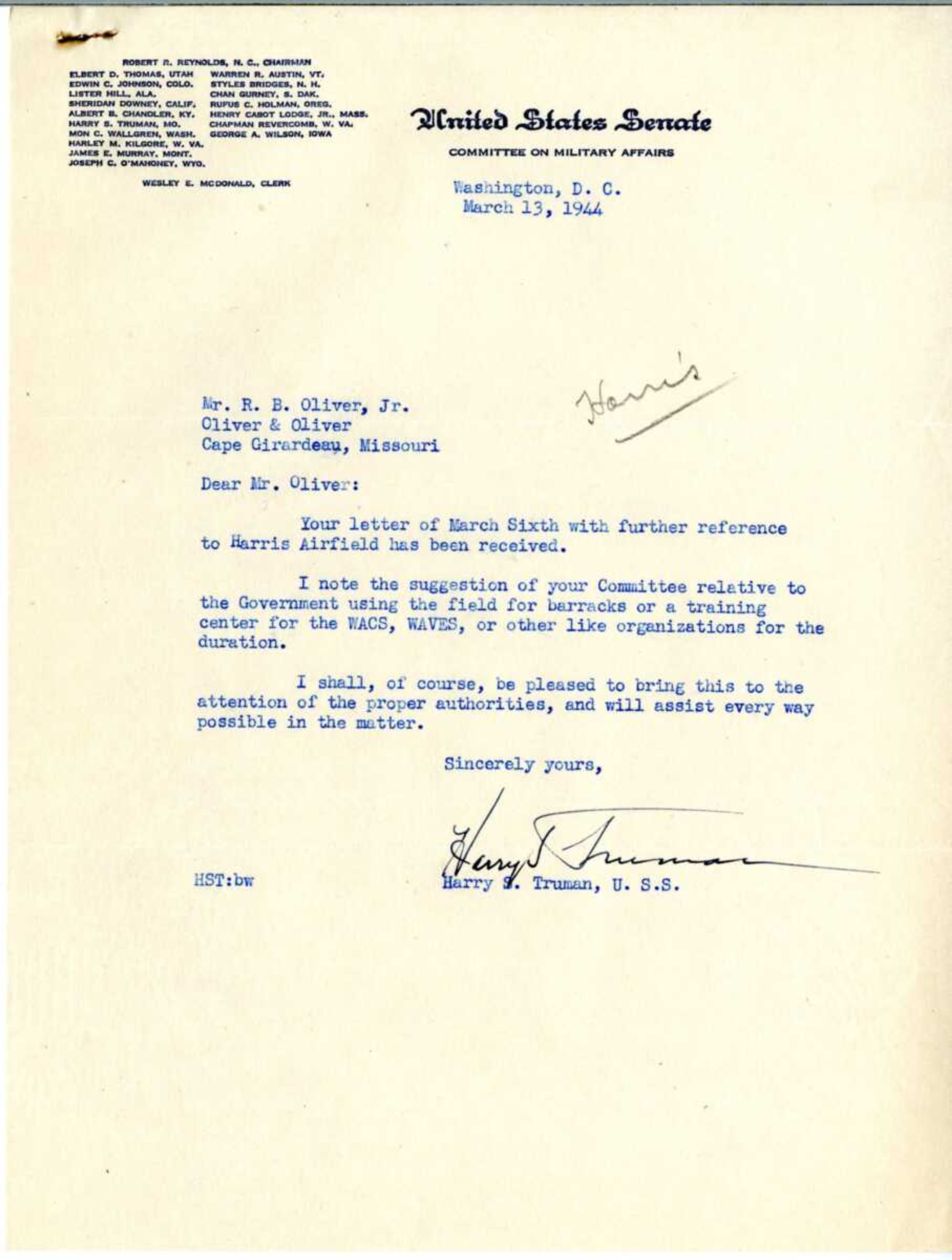Harris Field: Becoming the municipal airport
In February 1944, news arrived in Cape Girardeau that Harris Field would be discontinued by the Army Air Corps as a training facility for pilots the following month. With nearly 60-acres of real estate soon to be in the hands of the lessee, Defense Plant Corp., city officials acted quickly to see if the federal government might temporarily lease the field to them for a year. ...
In February 1944, news arrived in Cape Girardeau that Harris Field would be discontinued by the Army Air Corps as a training facility for pilots the following month. With nearly 60-acres of real estate soon to be in the hands of the lessee, Defense Plant Corp., city officials acted quickly to see if the federal government might temporarily lease the field to them for a year. The city wanted to make sure that the field remained an airfield in some capacity. To assist in this, Mayor Raymond E. Beckman created an advisory committee that included Robert B. Oliver Jr., Fred A. Groves, C.A. Juden, J.B. Carpenter, Monsignor H.F. Schuermann, Ferd Strum and P. A. Evans. Oliver wrote to his son, Donald M. Oliver, on March 21 that he could see the field being "converted into a school for WAVES, WACS or other women's auxiliary group."
Mayor Beckman and Oliver wrote letters to U.S. Rep. Orville Zimmerman and U.S. Sen. Harry S. Truman to see if they could get their support in securing the lease. Oliver commented to Zimmerman that he believed that "aviation is going to go ... by much greater leaps and bounds after the war than the automobile industry developed and every town the size of Cape Girardeau should begin to take steps to provide facilities for such purposes." Both Zimmerman and Truman wrote back stating that they supported the city government's efforts and would lend their support as needed. Unfortunately, their efforts did not pay off, because the Defense Plant Corporation rejected the city's offer of $1 because it were still waiting on the government to decide what to do with the property.
At 6 p.m. March 24, 1944, Harris Field discontinued operations as a military training base, and the field and accompanying buildings returned to the ownership of Defense Plant Corp. In April that same year, a letter reached Oliver from Truman's executive assistant, stating that the government was putting Harris Field on a "stand-by" list. This meant that Harris Field could be re-activated if necessary. This led the committee to seek other opportunities for the property. One company that visited the field to do an assessment was the Laister-Kauffman Aircraft Corporation of St. Louis. They sent two representatives to Cape Girardeau in September 1944. After their visit, though, they responded that due to the temporary nature of the buildings, the facility was not suitable for what they had envisioned. Although this deal fell through, the city did ultimately sign a monthly lease, at $50 per month, with Reconstruction Finance Corp. for the right to use the runway and buildings in December 1945. The Cape Girardeau Municipal Airport officially began in 1946 and has continued to the present day.
Connect with the Southeast Missourian Newsroom:
For corrections to this story or other insights for the editor, click here. To submit a letter to the editor, click here. To learn about the Southeast Missourian’s AI Policy, click here.











